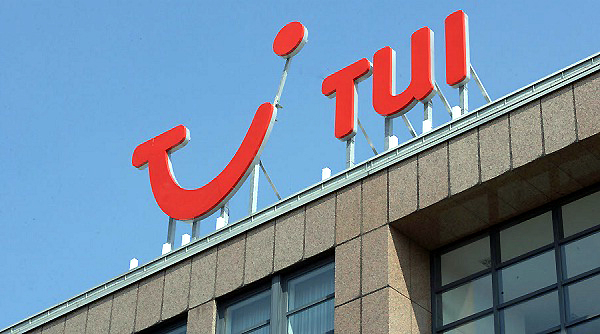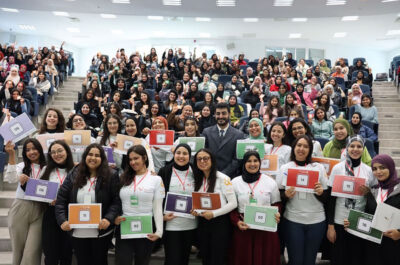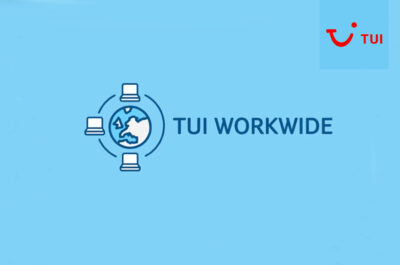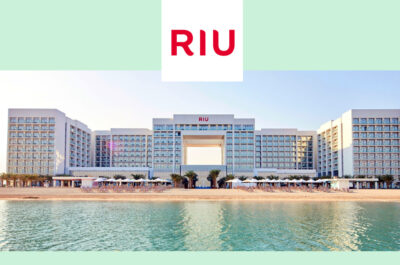Third quarter meets own expectations with significantly reduced costs. Bookings for summer 2021 very promising: +145 percent. Including the stabilisation package TUI would have available liquidity in the amount of around 2.4 billion euros.
TUI has successfully resumed its travel activities in all European markets. In mid-June, TUI was the first travel company to bring German guests to Majorca in a pilot project. Due to the increased hygiene and safety measures in aircraft, transfers and in TUI's hotels and clubs in the destinations, the restart from Germany was successfully implemented. After the official end of the travel warnings for most European destinations, holidays were also launched in the remaining TUI markets at the beginning of July. In addition to the Balearic Islands, Greece and the Greek Islands in particular are an important and major holiday destination for TUI and its guests. In July, more than half a million customers across Europe travelled with TUI on their summer holidays. Furthermore, demand for holidays remains very high: since the resumption of travel activities, 1.7 million new bookings have been received Group-wide. Bookings for summer 2021 are also very promising. They are currently 145 percent higher than last year's bookings for this summer. Operationally, current cash costs should be covered in the fourth quarter and cash break-even should be achieved.
TUI CEO Fritz Joussen said: "Our integrated business model with aircraft, transfers, hotels and cruise ships is intact and has proved its worth in this difficult environment. During the crisis it has enabled us to be the first travel company to fly guests on holiday. The summer holidays are conducted responsibly and with the highest standards of hygiene in all markets. These were developed and implemented in cooperation with the governments of the destinations, the Group’s hotels and airlines and the teams in the destinations. We were able to make integrated decisions on flight plans and hotel openings and also on the implementation of hygiene standards for all stages of the holiday. We also introduced massive cost reductions early and implemented them quickly and consistently. The additional governmental loan will secure our liquidity in the event of further long-lasting travel restrictions and disruptions through COVID-19. The securing of financial resources will allow us to focus on our operating business and at the same time drive forward the realignment of the Group. Even before the pandemic, we had already initiated the next transformation of TUI: the transformation into a digital platform company. This is now being significantly accelerated. TUI after the crisis will be stronger, faster and more efficient than TUI before the crisis".
Liquidity and financial resources secured beyond the 2020/21 winter season
TUI and KfW have agreed to increase the existing KfW loan by 1.05 billion euros. The drawing of this amount is subject to the issuance of a Convertible Bond to the Economic Stabilization Fund (WSF) in the amount of 150 million euros and a waiver by the bondholders of the Senior Notes due in October 2021. Both conditions and other formal requirements need to be fulfilled by 30 September 2020.
The 1.2 billion euros stabilisation package strengthens TUI’s position and would provide sufficient liquidity in this volatile market environment. It would cover TUI’s seasonal swing through Winter 2020/21 and thereafter and any further long-term travel restrictions and disruptions through COVID-19.
In addition, TUI has contributed Hapag-Lloyd Cruises to the joint venture TUI Cruises, jointly operated with the Royal Caribbean Group. The transaction was successfully completed despite a challenging environment due to the crisis. As a result, an additional 690 million euros will flow into the TUI Group and help to improve liquidity. TUI had previously reached a comprehensive agreement with Boeing to offset the impact of the 737 MAX grounding. The agreement will compensate a large part of the damage incurred over the next two years and postpone the delivery of new aircraft until the coming years. This will relieve the balance sheet on the one hand and at the same time allow TUI to plan its fleet more flexibly in times of the pandemic.
Including the additional stabilisation package, TUI AG would have cash and available facilities of 2.4 billion euros.
Implementation of first measures for realignment and accelerated transformation – cost base to be reduced by more than 300 million euros per year
In the quarter under review, TUI initiated and implemented initial measures for the announced realignment. The realignment comprises a global cost-cutting programme, in particular to accelerate the transformation and expansion of the digital platforms already initiated before the pandemic and the "asset-right" strategy also launched before the COVID-19 crisis. This strategy is now to be implemented even more quickly. Overhead costs are to be reduced permanently and Group-wide by 30 percent. This corresponds to annual savings of more than 300 million euros. The first measures introduced include the planned fleet downsizing at TUI fly in Germany, the extensive restructuring of the French business with a focus on the core brands and the expansion of digitalisation, particularly in the UK, where 166 travel agencies will be closed. In addition, TUI will expand digital services at the holiday destinations. The Spanish Group subsidiary TUI Destination Experiences intends to offer its guests more and better services at their holiday destinations. The TUI App is to become the concierge for all aspects of one's own holiday and provide information at the holiday destination.
Successful cost reductions limit loss in Q3 – Excluding COVID-19 effects: first nine months better than previous year
Following TUI's very successful start into the current financial year 2020, all Group travel activities were discontinued in mid-March due to the worldwide travel warnings. This also applied to almost the entire reporting period. Only shortly before the end of the third quarter, the travel warnings for most European destinations were lifted and TUI was able to fly its first holiday guests to Majorca in a pilot project. Due to the massive fixed cost reduction of more than 70 per cent, which was initiated at a very early stage, the loss was limited in the period under review. Underlying EBIT on a constant currency basis totaled -1.1 billion euros (previous year: 102.3 million euros). In the first nine months of the 2020 financial year, underlying EBIT amounted to -2.0 billion euros (prior year: -199.3 million euros). Excluding the effects of COVID-19, underlying EBIT for the first nine months amounted to -102 million euros, an improvement on the previous year. Joussen: "TUI is very experienced in managing crises – we will also master them successfully and TUI will emerge from them stronger and in the long term economically as successful as before the pandemic. We acted very quickly at the beginning of the crisis in March and we responsibly mastered the new start in the summer – together with governments and partners. We will now sustainably reduce our costs and thereby strengthen our position in the market”.
Outlook: Guidance for full year still not possible
Despite the resumption of travel activities, the current situation and the ongoing pandemic do not yet allow us to make a new forecast for the 2020 financial year. The Management Board had withdrawn this on 15 March. The 2020 summer programme is currently 57 percent booked (as of 2 August 2020), based on our new adjusted capacity.
TUI’s optimism for 2021 should be noted with caution amid refund confusion and UK's air bridges putting strain on industry recovery, says GlobalData
Johanna Bonhill-Smith, Travel & Tourism Analyst at GlobalData, a leading data and analytics company, offers her view: “The news that bookings for Summer 2021 are up by 145% at TUI strike a note of optimism, but caution is still necessary as numerous customers continue to await refunds.
“The ‘quarantine roulette’ of the UK’s air bridges is placing great uncertainty on the travel industry and hindering its recovery. TUI Group’s response has been timely and reactive – prior to Q3 results, it announced further flight cancellations to mainland Spain, as well as the Balearic and the Canary Islands. However, similarly to other operators, the company’s reputation has been tarnished by its handling of the pandemic.
“As of July 2020, 47% of passengers surveyed by MoneySavingExpert were still awaiting a refund. TUI has made adjustments to its website by offering customers the option to self-service their refund requests, yet it has still been recently criticized by the Civil Aviation Authority (CAA). Its relationship with suppliers has also been significantly damaged as it deferred 75% of winter hotel payments.
“As expected, catastrophic losses are evident for TUI. Revenue fell 98%, as of Q3 2020, to €75m (US$88.7m) comparable to the same period last year. As travel more or less ground to a halt between April and June, the company also registered a loss of €1.1bn (US$1.3bn) during the three-month period.
“TUI is without doubt in a strong position to withstand further headwinds, however, it is critical that the company continues to exercise caution. With numerous customers still awaiting a refund while the operator announces more bookings for next year, there is a risk of negative sentiment towards the brand developing. Operators need to be considerate in how they promote future bookings and holidays when many remain uncertain as to the future of their travel booking.”
Vicky is the co-founder of TravelDailyNews Media Network where she is the Editor-in Chief. She is also responsible for the daily operation and the financial policy. She holds a Bachelor's degree in Tourism Business Administration from the Technical University of Athens and a Master in Business Administration (MBA) from the University of Wales.
She has many years of both academic and industrial experience within the travel industry. She has written/edited numerous articles in various tourism magazines.










































































































































































































